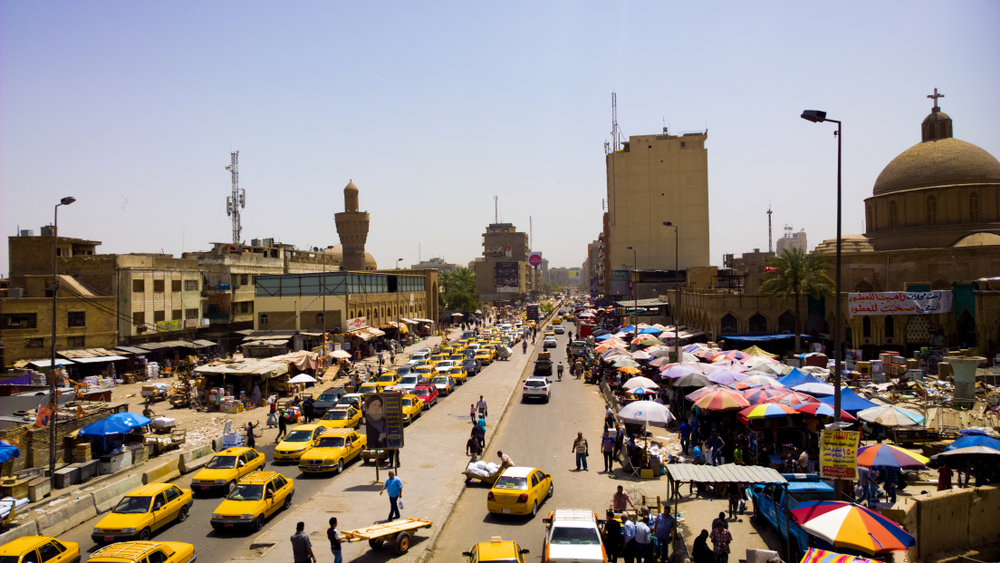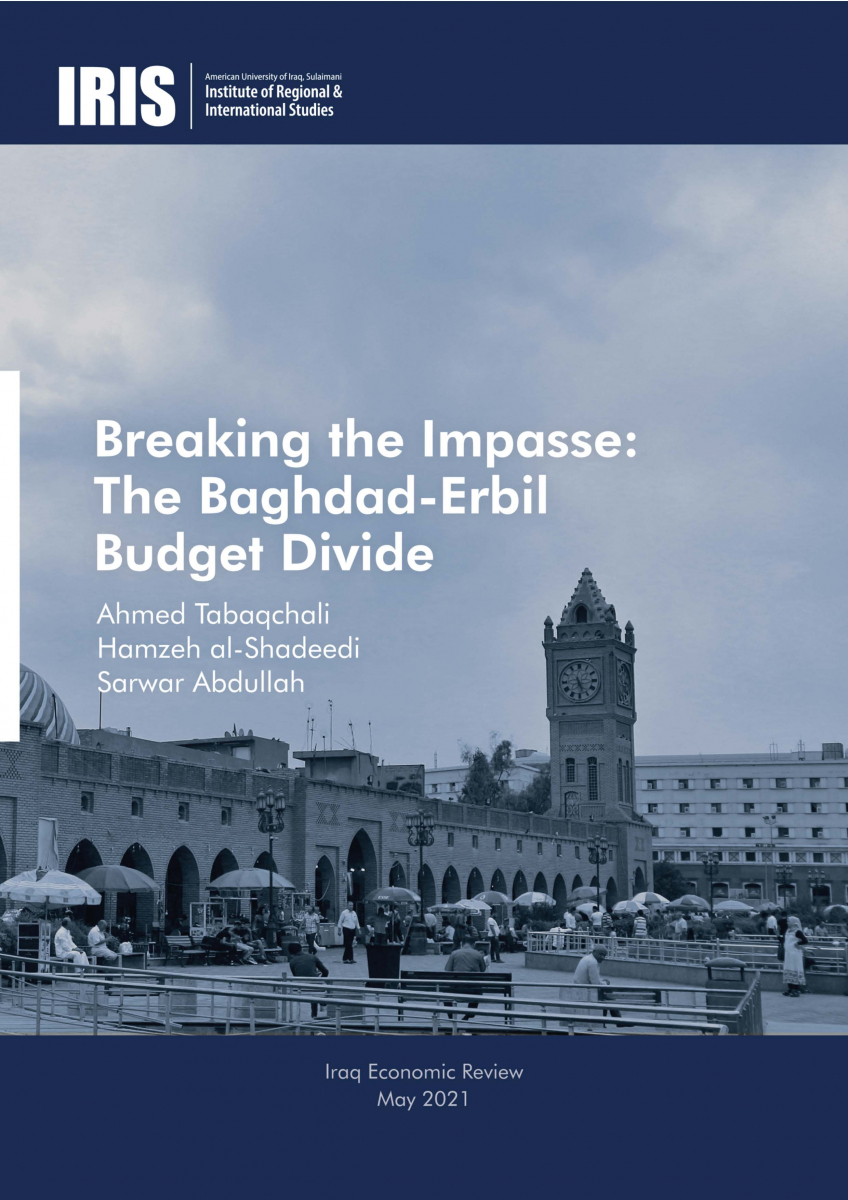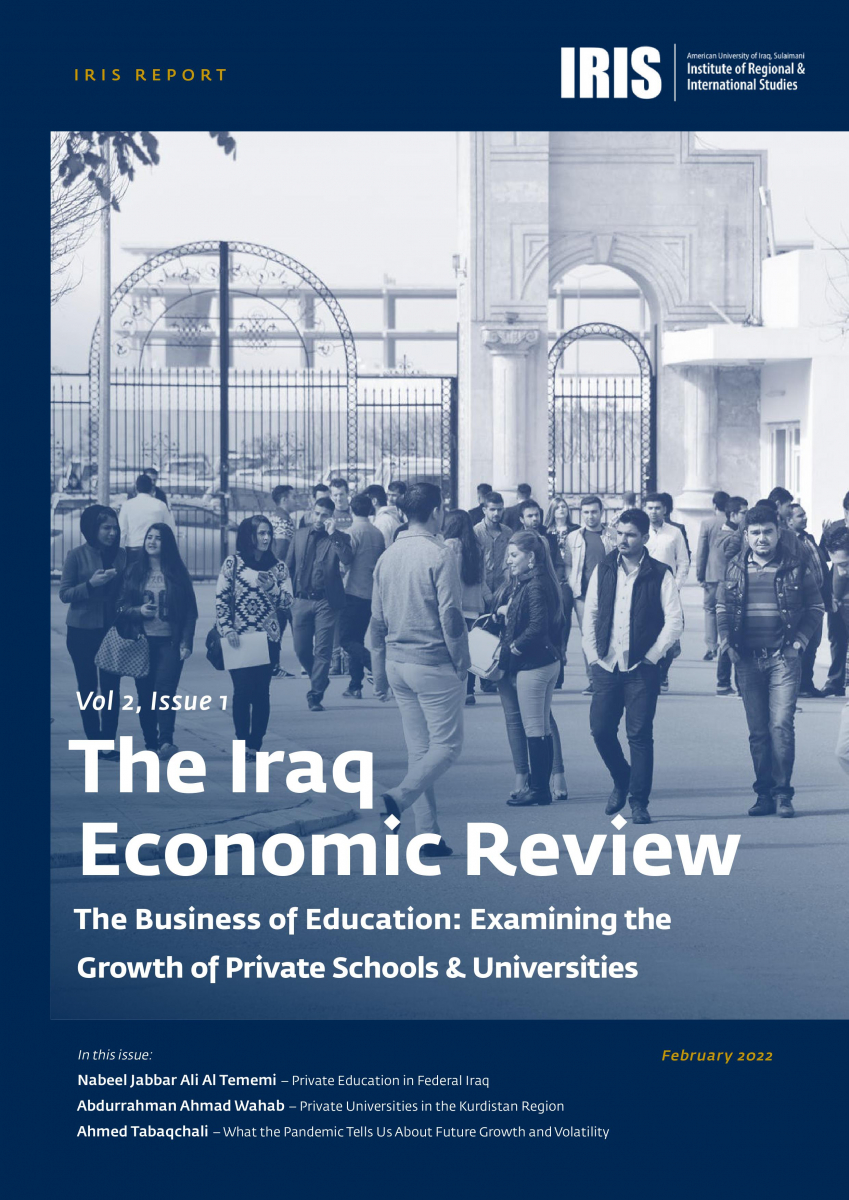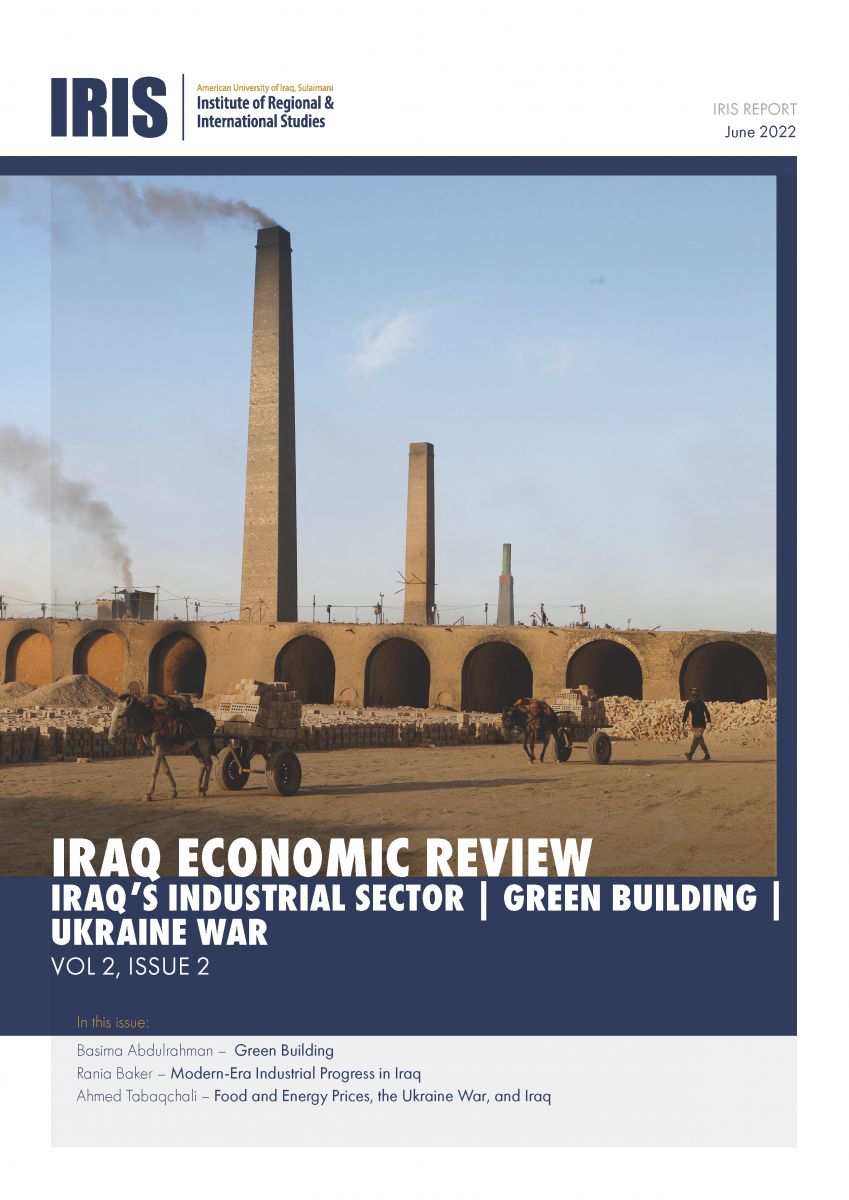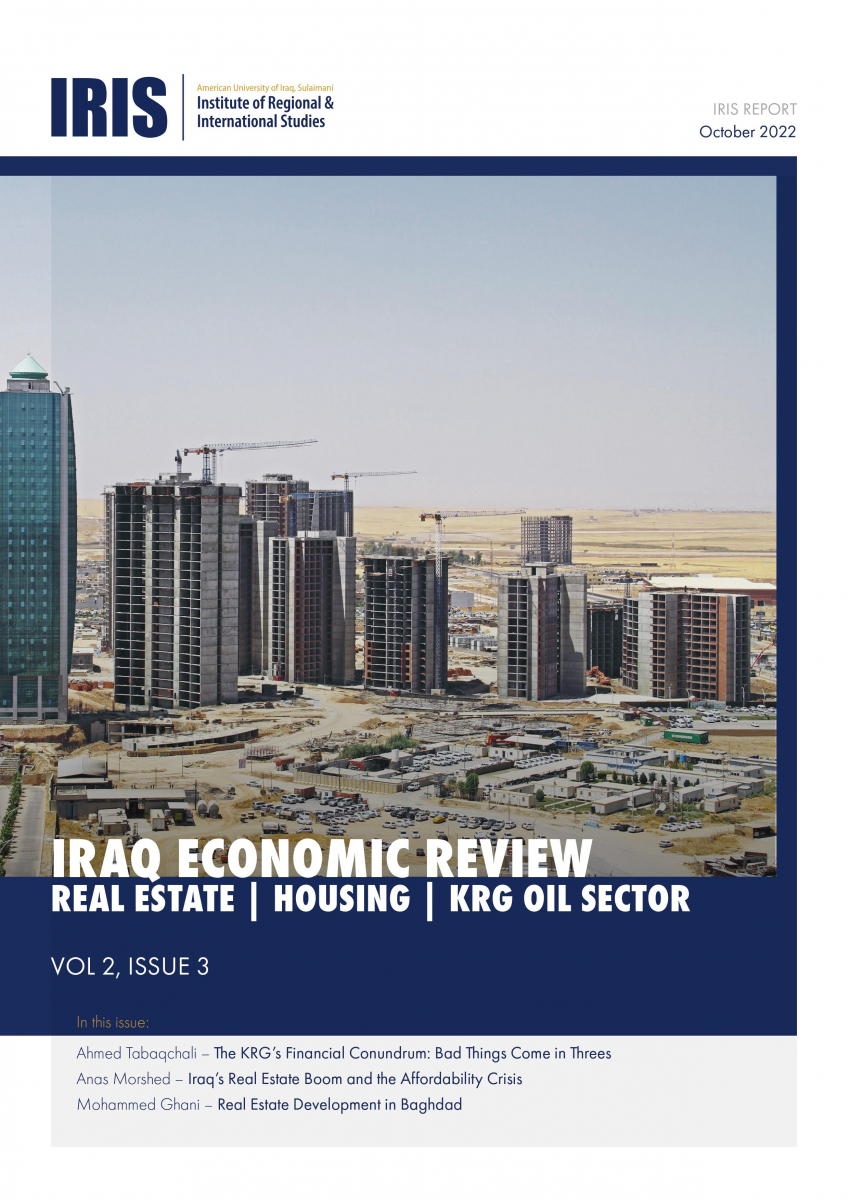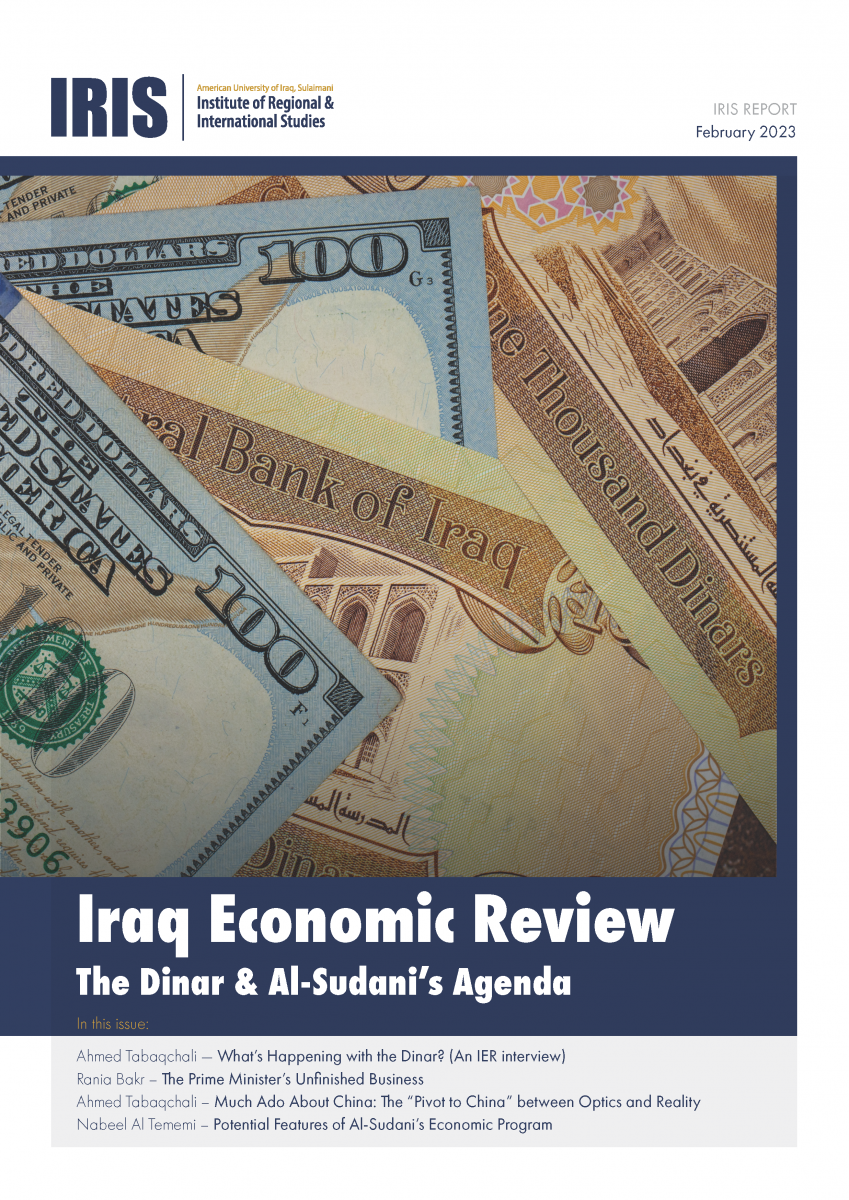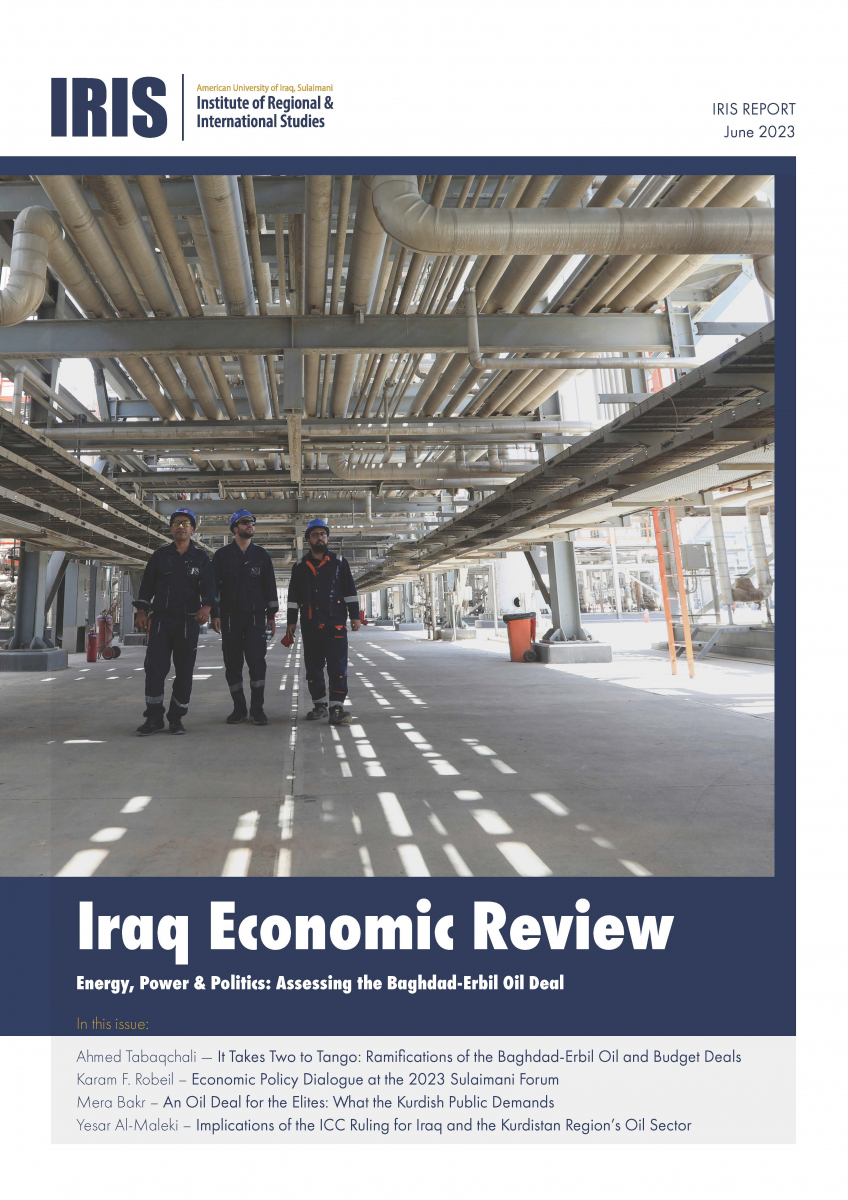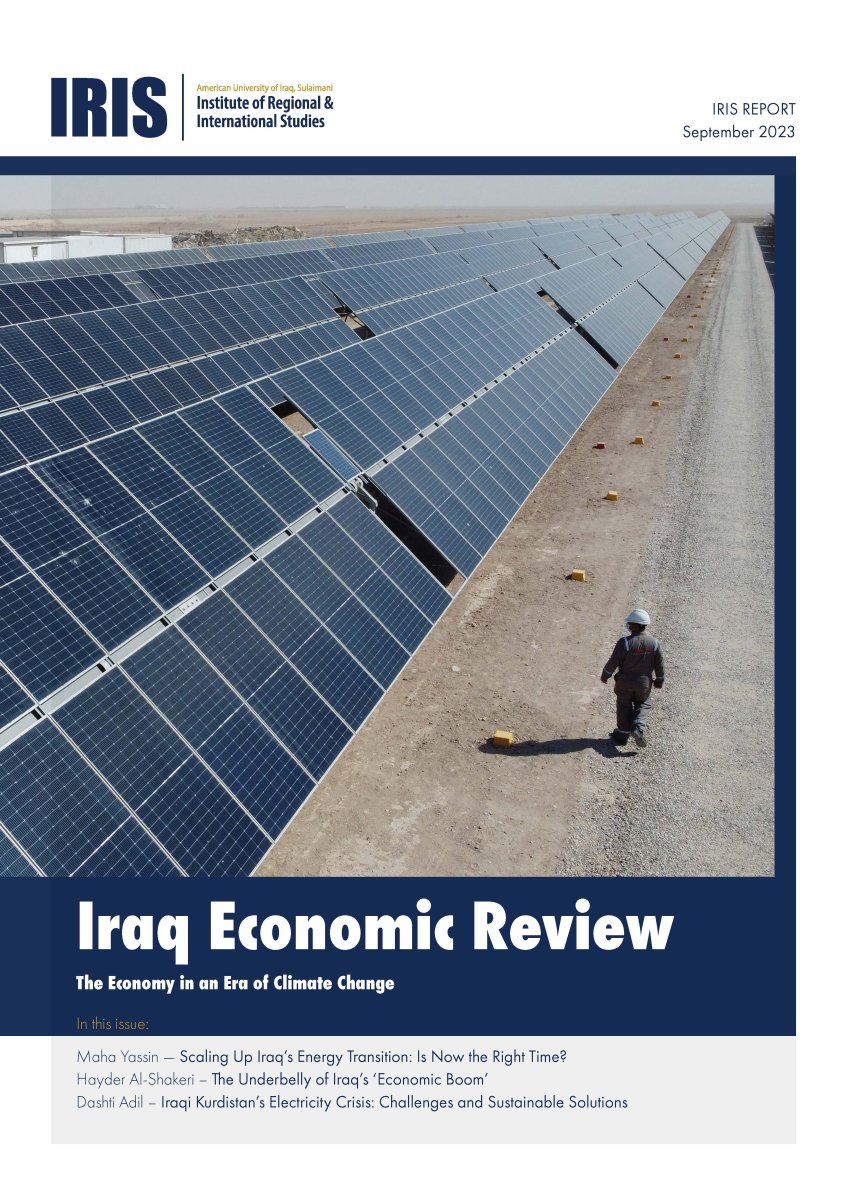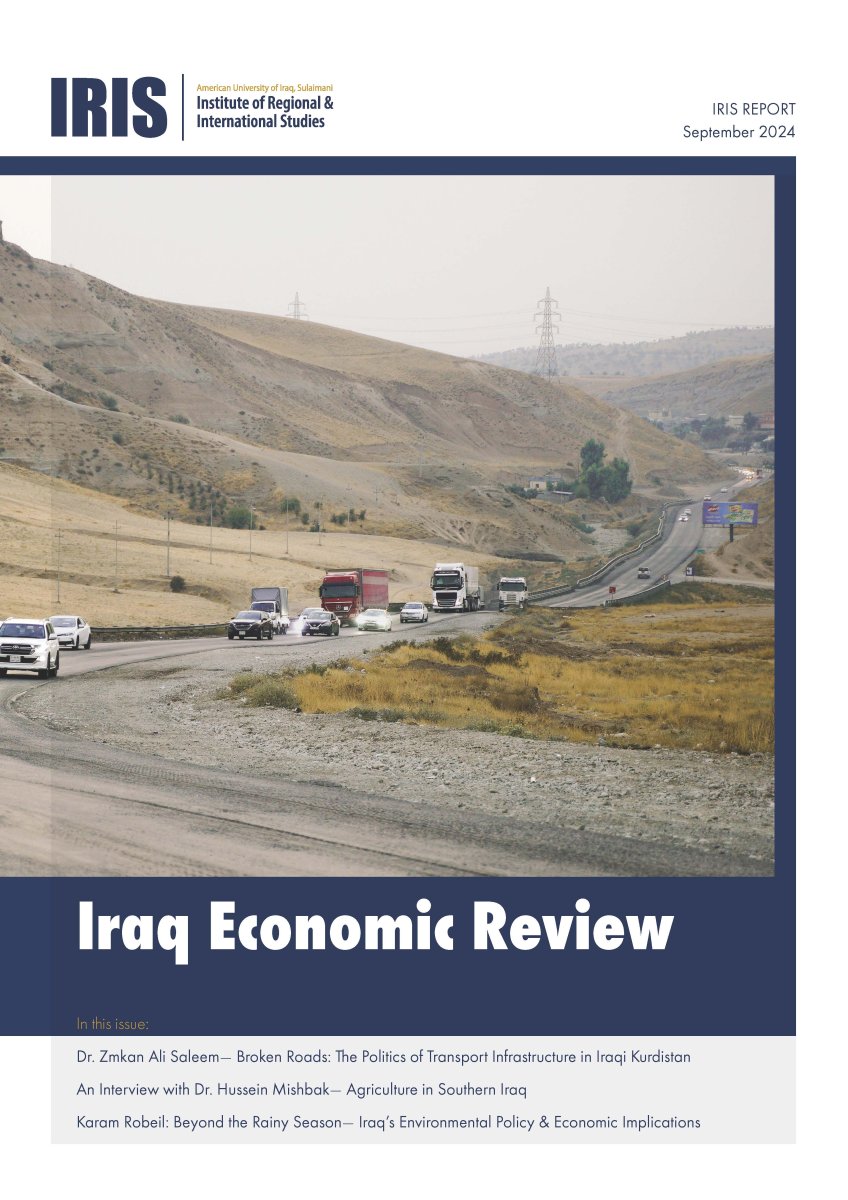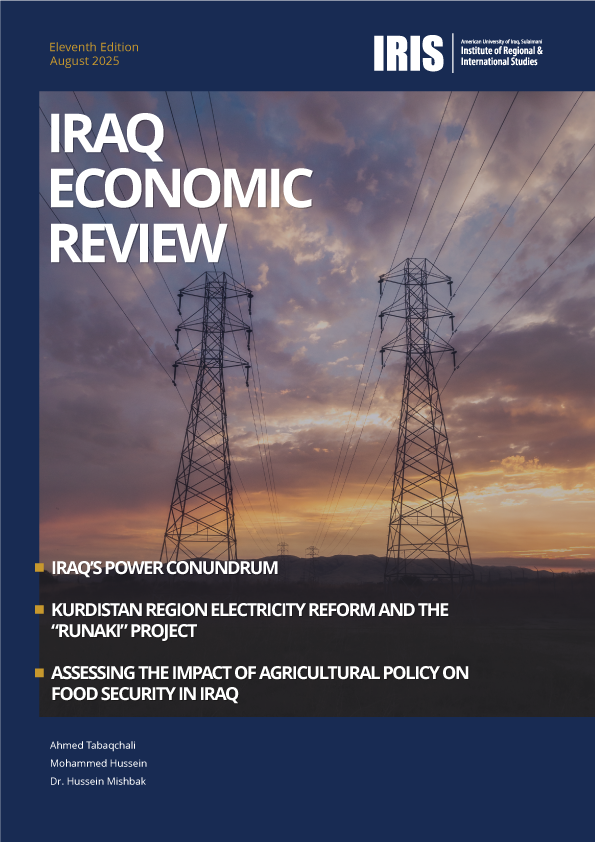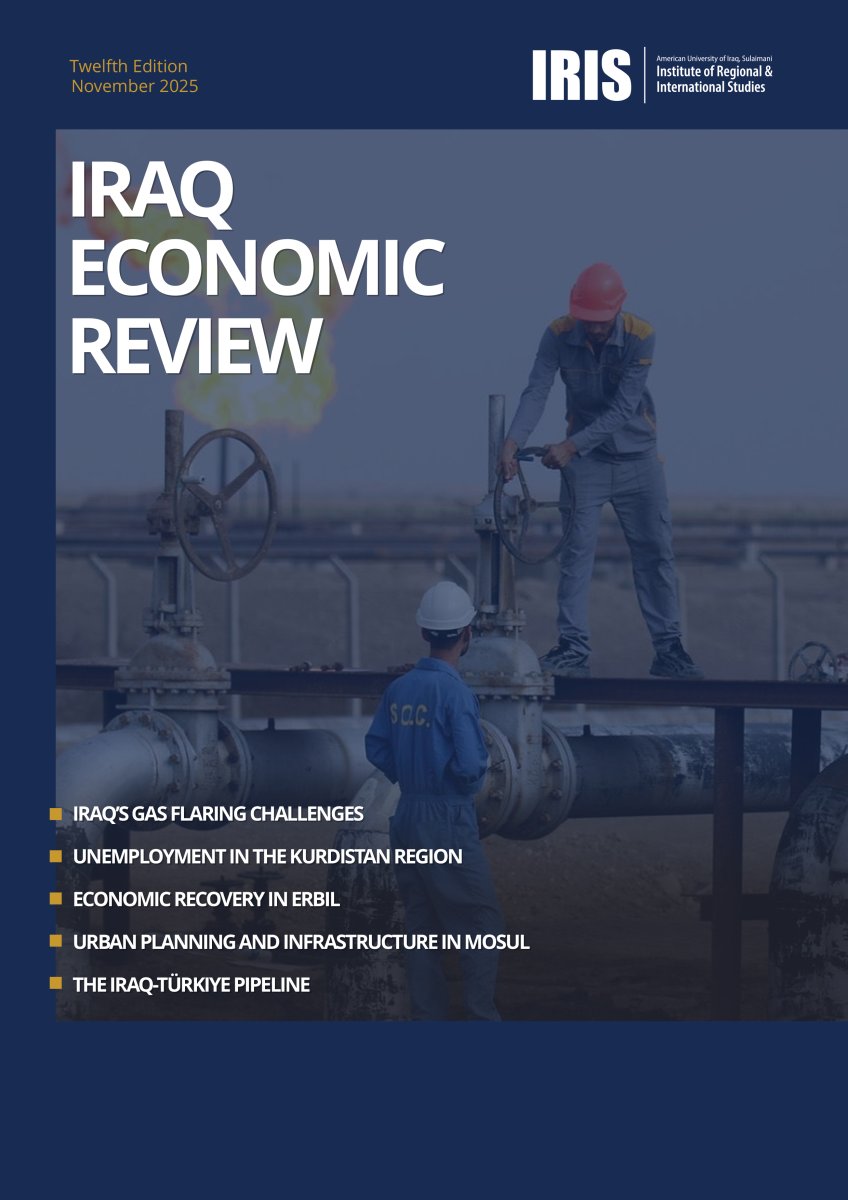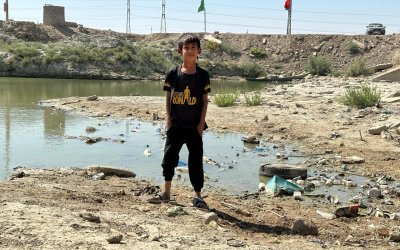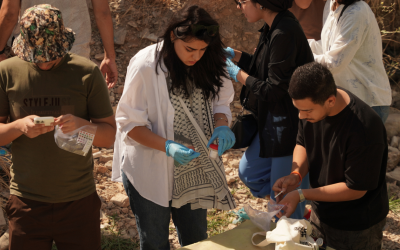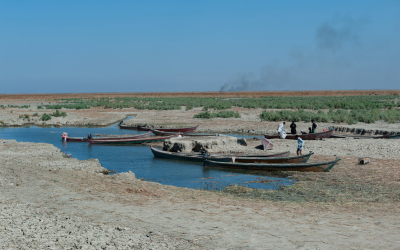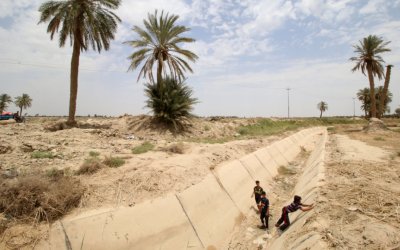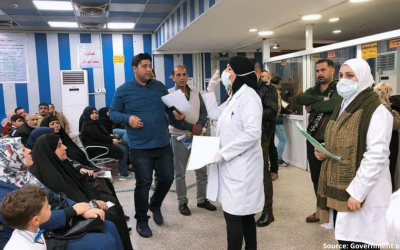IRIS is partnering with the National Endowment for Democracy (NED) on a research project to promote sound economic policy, knowledge, and transparency in Iraq. The project aims to shift the national policy conversation towards a long-term sustainable economic vision and empower local civil society actors with the necessary knowledge and tools to press for changes in the governmental approach to the economy. The project's main output is the publication of a concise but thorough Iraq Economic Review produced by IRIS Senior Fellow and Chief Investment Officer (CIO) of AFC Iraq Fund Ahmed Tabaqchali and IRIS Researcher Hamzeh Al-Shadeedi and published by IRIS in English, Arabic, and Kurdish.
The Review would become the one-stop-shop for understanding major economic trends in Iraq. Its regular publications would, in turn, provide opportunities for engagement with both the national policymaking community as well as local civil society actors through quarterly launch events convened in Sulaymaniyah and streamed online across the country. On an annual basis, the report's writers and editors will present universal findings at IRIS’s flagship policy event, the Sulaimani Forum, which brings together officials and civil society actors from across the country to Sulaymaniyah for policy discussions. The inclusion of the Review in the proceedings of the Forum will ensure high-level visibility.
Project Objective
Although Iraq is a world leader in oil production and represents a significant middle-income consumer base, understanding its economy in the national policymaking community remains mostly limited to official state numbers. Thorugh the production of the Iraq Economic Review, IRIS and NED partnership seeks to reverse this trend by:
- Empowering civil society with economic competencies: The Iraq Economic Review aims to empower local civil society actors with the necessary knowledge and tools to press for changes in how the government approaches the economy. The Review will reduce asymmetries in access to economic knowledge resources between civil society actors and the Iraqi government, providing a common set of economic information to both sides, fostering constructive conversation between society and state actors.
- Shifting the national policy conversation: The Iraq Economic Review aims to shift the national policy conversation -- which has primarily emphasized security since 2003 -- towards a greater focus on establishing a long-term sustainable economic vision that aligns with the unique post-conflict conditions of the country.
Outputs
Researchers Events
Breaking the Impasse: The Baghdad-Erbil Budget Divide.
On May 20, 2021 IRIS hosted a public webinar with Ahmed Tabaqchali (Senior Fellow, IRIS), Megan Connelly (Non-Resident Fellow, IRIS), and Sarwar Abdullah (Lecturer, University of Sulaimani), moderated by IRIS Researcher Hamzeh al-Shadeedi. The webinar discussed the findings from the second edition of the Iraq Economic Review entitled “Breaking the Impasse: The Baghdad-Erbil Budget Divide.”
Pulling Iraq's Economy Back from the Brink
On November 25, 2020, Tabaqchali spoke on a panel entitled “Pulling Iraq's Economy Back from the Brink,” as part of the Chatham House conference on Iraq. The session will explored short-term economic challenges and long-term implication of reforming the rentier state in Iraq.
Interview on Iraq's White Paper with Ahmed Tabaqchali
On December 20, 2020 Tabaqchali, as a co-author of the White Paper, was featured in an interview explaining the core components of the paper, mainly focusing on the fault lines at the core of Iraq’s economic hardship (i.e. mismanagement and rentierism).
Iraq’s Static Budget Process
On Wenesday, January 6, 2021, Lead Researcher, Ahmed Tabaqchali partcipated in a discussion surrounding his upcoming report, Gone with the Muhasasa - Iraq’s static budget process, and the loss of financial control orginized by Atlantic Council’s Iraq Initiative. The paper outlines the inefficiencies inherent in Iraq’s current budget process and the need for a revamped, dynamic and transparent budget mechanism.
The discussion featured the author of the paper alongside Alia Moubayed, managing director of fixed income strategy at Jeffries International, and Olin Wethington, the founder and chairman of Wethington International LLC, and moderated by David Mack, nonresident senior fellow at the Atlantic Council.
Evaluating Iraq's Economic Reform Agenda
On September 21st, 2021, IRIS held a panel discussion on the Iraq Economic Review (IER) project entitled “Evaluating Iraq’s Economic Reform Agenda” at the American University of Iraq, Sulaimani. During the session, IRIS Senior Fellow, Ahmed Tabaqchali, IRIS researcher, Hamzeh Al-Shadeedi, Director General for electronic payments at the Central Bank of Iraq, Duha Abdulkareem, and Iraqi parliament member, Ahmed Haji Rashid, discussed the outputs of the three editions of IER, the process of linking the theoretical aspect of the research with practical reality, and assessed the economic reform agenda and its applicability on the ground. The session was moderated by IRIS Executive Director, Mac Skelton.
Economic Trends and Sectors to Watch in 2022
On March 7th, 2022, IRIS organized an online roundtable event entitled "Economic Trends and Sectors to Watch for in 2022" to review and discuss the findings and ongoing research of the Iraq Economic Review. The meeting included brief remarks from Ahmed Tabaqchali, senior research fellow at IRIS, who gave an overview of macro-economic trends, oil prices, the future of economic reform in Iraq as well as the lessons that should be learnt from the COVID-19 pandemic. Rania Baker, research fellow at IRIS, discussed industry and domestic production in Iraq. Abdurrahman Wahab, policy researcher at IRIS, and Nabil Al-Tamimi, independent economic and political analyst, presented an overview of the growth of private sector education in Iraq and the Kurdistan Region. The meeting participants were political and civil society leaders.

